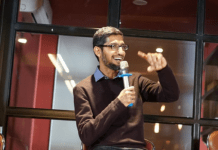The pandemic has presented challenges not just for the corporates but even the judiciary of our country. The way judicial proceedings are carried out virtually is not going down too well with the legal fraternity. The Supreme Court has observed that the hybrid model of functioning is not working for them. A bench comprising Justices L Nageswara Rao and B R Gavai, has expressed that they are unhappy with the hybrid model of working, and that the apex court is finding the arrangement quite challenging.
The Court was forced to go virtual because of the pandemic. It made arrangements so that justice could be ensured for all citizens, but it also maintains that hybrid cannot become the norm. The bench said that if hybrid and virtual hearing are made the norm, the very existence of physical courts will be at risk.
The bench was hearing a plea filed by the NGO, the National Federation of Societies for Fast Justice, and eminent citizens such as Julio Ribeiro and Shailesh R Gandhi, who maintain that virtual court hearing is a fundamental right for the litigants. Advocate Manoj Swarup argued that that virtual hearing is economical and saves a lot of expenses for many people who travel from far-off places for hearing.
However, the bench responded by asking that substantial data be produced to support this, that is, the number of people travelling from distant cities and remote areas to the Supreme Court for justice.
Ever since the pandemic, judges have been hearing arguments and attending proceedings virtually sitting in court rooms. They have observed that not even a single advocate has been physically present in the court for arguments. They maintain that if the bench declares virtual hearing to be a fundamental right for all citizens, then all advocates would rather be attending court cases from wherever they prefer, while judges would be sitting in court rooms.
Swarup argued that the arguments presented by him are not from an advocate’s point of view, but that he is speaking for the citizens. He clarified that his suggestion was not to make virtual hearings the norm for good, but that it should be available as an option for the citizens.
The bench pointed out that advocates who handle multiple cases will find it challenging to handle physical proceedings and virtual sessions simultaneously. After all, it would be difficult for them to attend a virtual session after attending a session in the court room.
The petitioner was asked to submit suggestions on how virtual hearing can be made a norm for consideration in the next hearing four weeks later.
Value our content... contribute towards our growth. Even a small contribution a month would be of great help for us.
Since eight years, we have been serving the industry through daily news and stories. Our content is free for all and we plan to keep it that way.
Support HRKatha. Pay Here (All it takes is a minute)




































